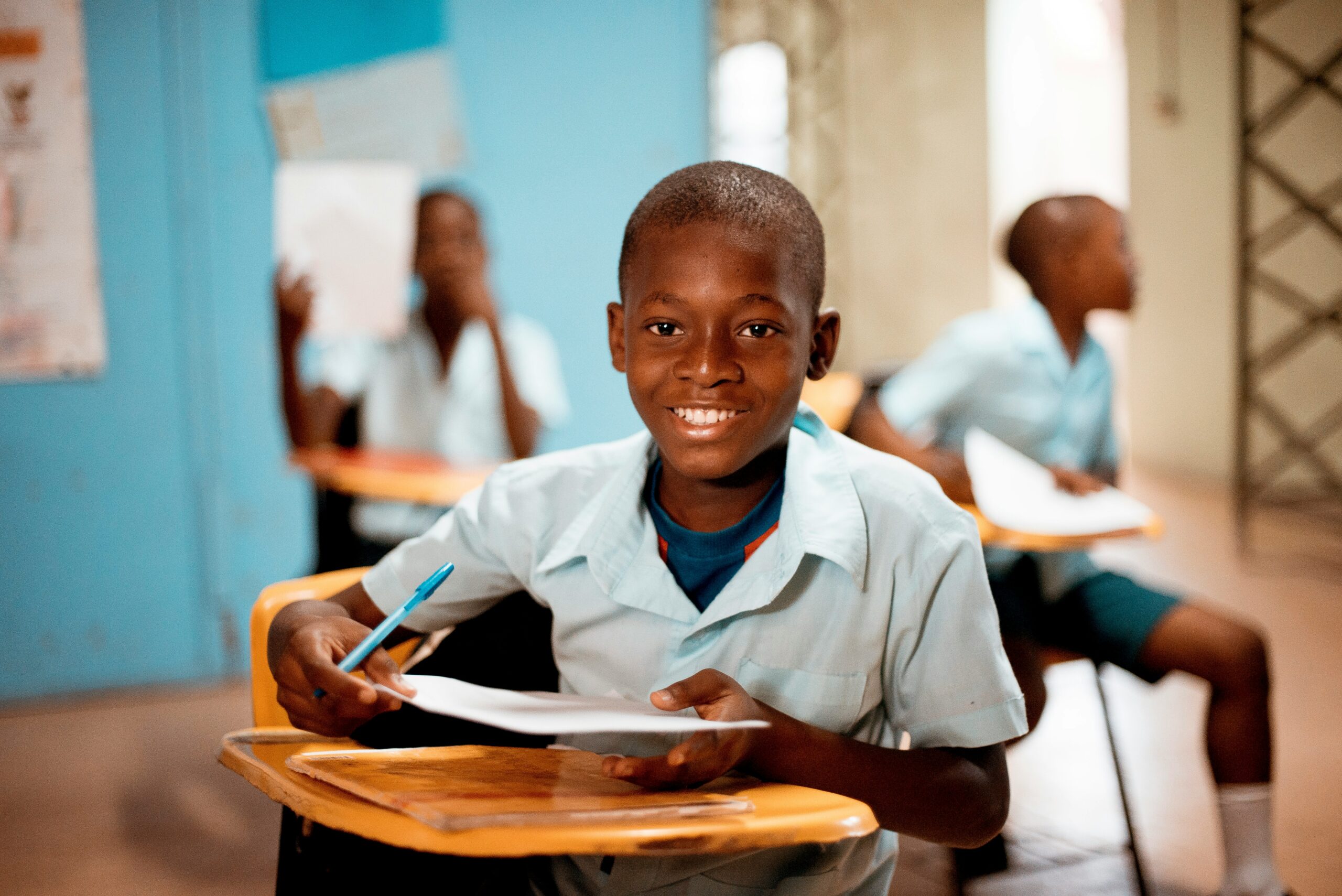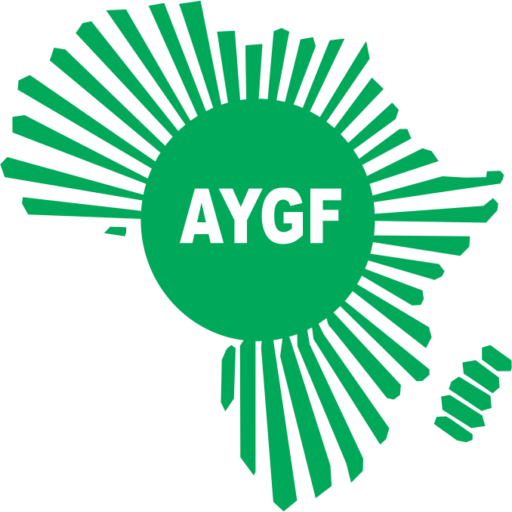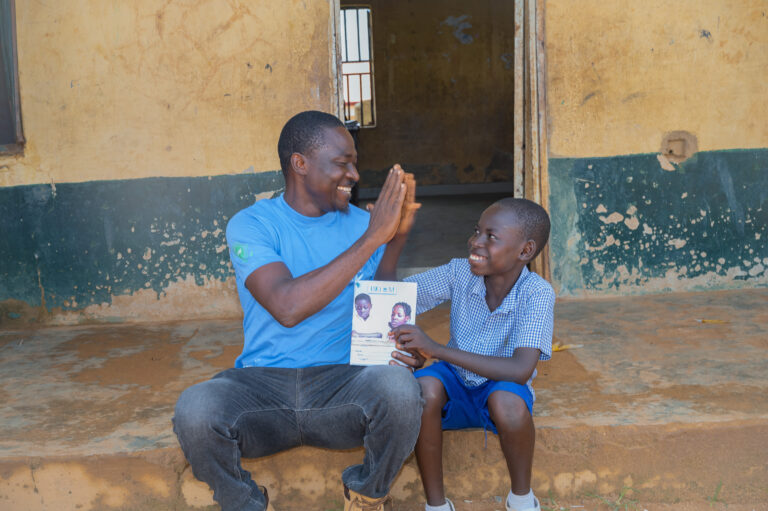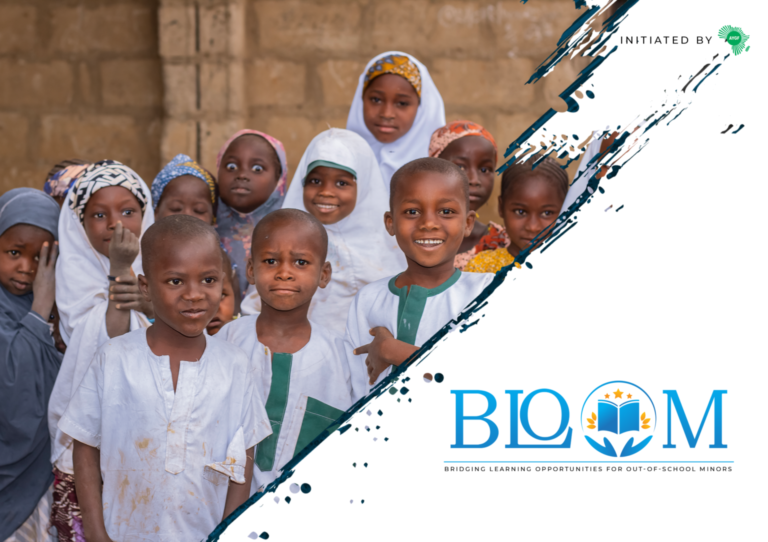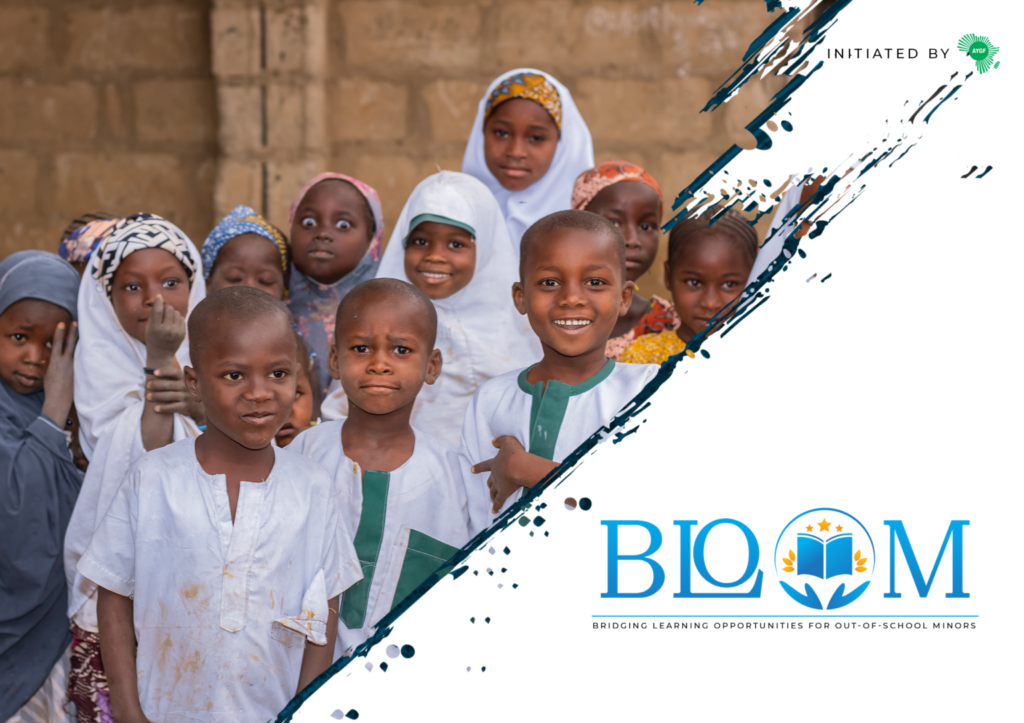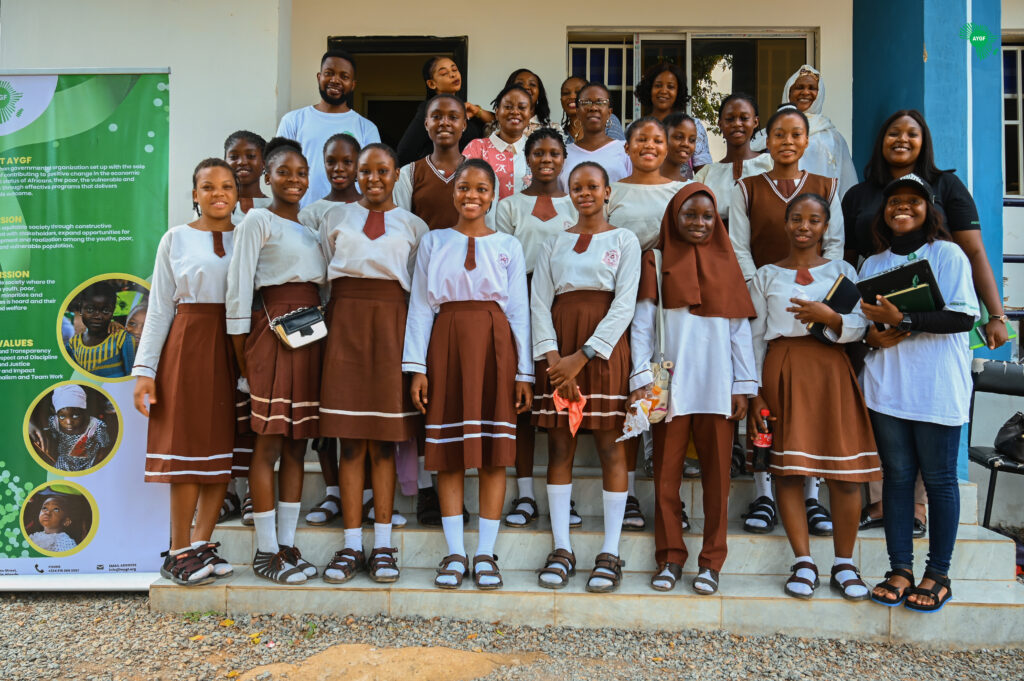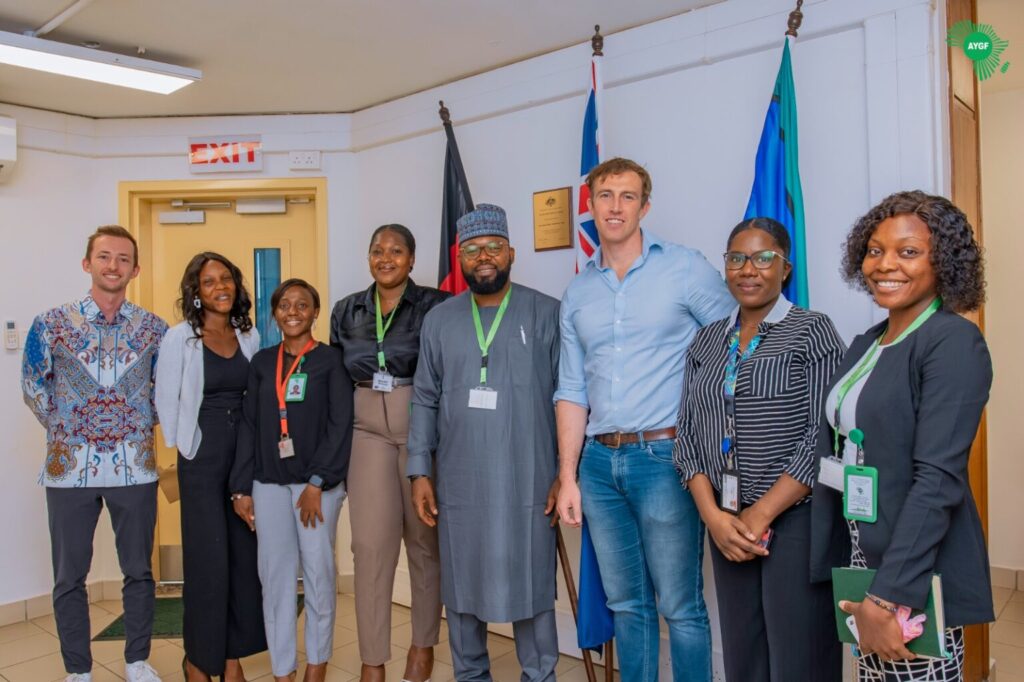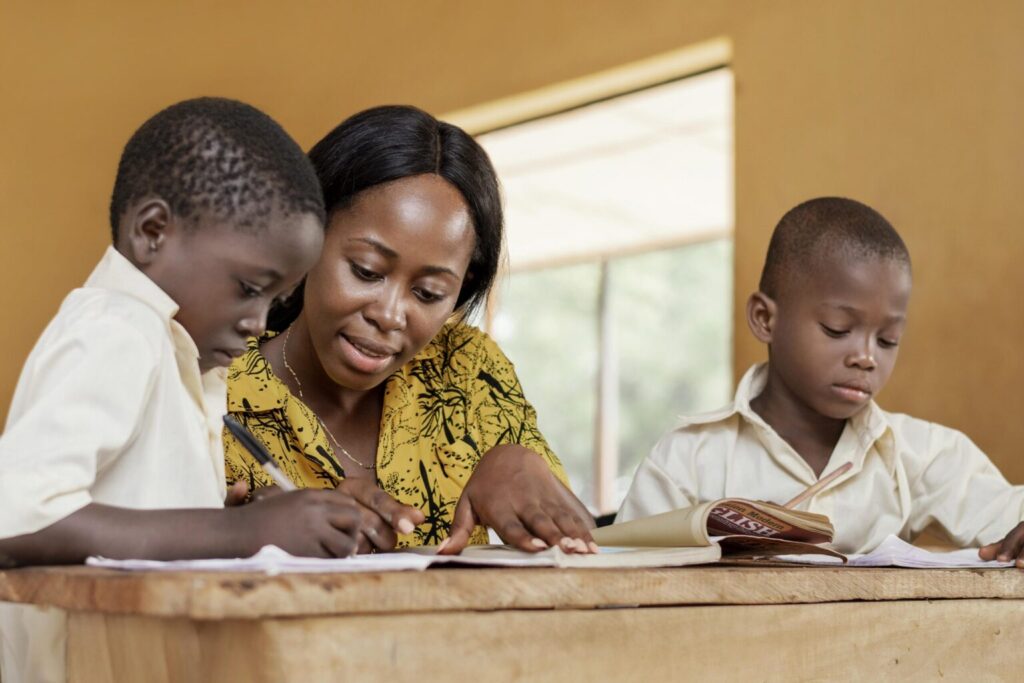BLOOM which stands for Bridging Learning Opportunities for Out-of-School Minors is a project initiated by the Africa Youth Growth Foundation (AYGF) to directly address the core issues outlined in Sustainable Development Goal 4 (Ensuring Inclusive and Equitable Quality Education and promoting lifelong learning opportunities for all).
BACKGROUND
According to a 2024 report by the United Nations Children’s Fund (UNICEF), Nigeria accounts for a large portion of the world’s highest rate of out-of-school children, with girls disproportionately affected, making up 62% of the over 20 million children lacking access to education. This represents a significant rise of over 96% from the previous estimate of 10.5 million in 2021. This spike is driven by a complex interplay of factors, including poverty, insecurity from displacement due to natural disasters or violence, infrastructure decay, child labour, and harmful sociocultural norms that devalue formal education, particularly for girls. The increase in the number of out-of-school children is particularly acute in States such as Bauchi, Niger, Katsina, Kano, Sokoto, Zamfara, Kebbi, Gombe, Adamawa, Akwa Ibom and Taraba, where high rates of illiteracy persist, as reported by UNICEF in 2019.
PROBLEM
- Basic education in Nigeria is something many households are struggling to afford due to complex interplay of factors, including poverty, insecurity from displacement due to natural disasters or violence, infrastructure decay, child labour, and harmful sociocultural norms that devalue formal education, particularly for girls. A 2023 report from the World Bank states that the poverty rate in Nigeria has increased to 46%, representing 104 million poor Nigerians.
- In various communities, many out-of-school children aged 5 to 10 have been forced to abandon their education to contribute financially to their families’ survival.
- Without education, out-of-school children are more likely to be exploited, fall victim to radicalisation, and remain trapped in poverty, leaving Nigeria’s workforce compromised, hindering economic growth and perpetuating a cycle of disadvantage.
IMPORTANCE OF QUALITY EDUCATION
- The Role of Education in any society, significantly impacts on the country’s economic growth and development.
- By equipping citizens with the skills and knowledge they need to compete in the global economy, Nigeria can attract foreign investment, create jobs, and ultimately, reduce poverty.
- Facilitates the effective industrialization of the economy through the provision of competent human resources with adequate managerial, technical and professional skills.
- Reduces the number of children that are exploited or radicalized.
OBJECTIVE OF BLOOM
The fight for quality education for all requires a multi-faceted approach that addresses security needs and underlying social issues. With the BLOOM project, AYGF is dedicated to:
- Increasing the capacity of 100,000 teachers in effective teaching methodologies, curriculum development, and child-centered learning approaches within five years.
- Reducing financial barriers to education by benefiting 700,000 households through conditional cash transfers.
- Improving school attendance and cognitive ability of 2 million out-of-school children through a school feeding programme.
- Increasing the number of classrooms and learning resources by 10% in out-of-school populated and underserved areas to accommodate a higher enrollment of out-of-school children within 5 years.
COMPONENTS OF THE BLOOM PROJECT
Leveraging existing Almajiri schools and their potential to accommodate a large number of out-of-school children offers a strategic solution to increase access to education in Nigeria, capacity building and addressing underlying social issues. AYGF is committed to creating a sustainable and impactful model in line with the Almajiri model to improve access to quality education for out-of-school children aged 5-10 in targeted regions of Nigeria one state at a time using some of the following methodologies:
- Access to School: Reintegrating Out-of-School Children via Community Engagement, awareness campaigns highlighting the benefits of education, particularly for girls and, Flexible Learning Options or bridge programs to ease children back into formal education.
- Teacher Training: Equipping Educators through innovative and technology capacity-building workshops, Designing training programs focused on child-centred pedagogy, and classroom management skills, Partner with teacher training colleges in Abuja for professional development, Providing mentorship and support for Almajiri teachers integrating into the formal education system and, Emphasize inclusive teaching practices to cater to diverse learning needs.
- Infrastructural Support: Creating Conducive Learning Environments with the rehabilitation and Upgrade of schools, Collaborate with government agencies and local communities to secure resources for infrastructure improvements, Advocate for long-term infrastructure maintenance plans, Organize school supply drives to ensure students access textbooks, notebooks, and learning aids and, explore options for locally-produced, low-cost teaching materials.
- Technology for Remote Learning: Bridging the Gap in Insecure Areas using Technology-Enhanced Accelerated Learning that enables online and offline learning. Develop interactive online modules and mobile applications aligned with the national curriculum and Utilize solar panels to provide electricity in remote areas, ensuring reliable power for technology use in schools.
GOAL OF THE BLOOM PROJECT
Overall Goal of the BLOOM project is to get Two Million out-of-school children aged 5-10 back to the classroom by 2030 to reduce the number of out -of -school children in Nigeria. Future Funding will be diversified through partnerships and fundraising while Local stakeholders, will be empowered to take ownership through collaboration and capacity building. Regular monitoring and adjustments will keep the plan adaptable and it is our hope, that this comprehensive approach ensures the BLOOM project’s positive influence on education in Nigeria and Africa.
CLICK TO DOWNLOAD THE BLOOM BOOKLET
